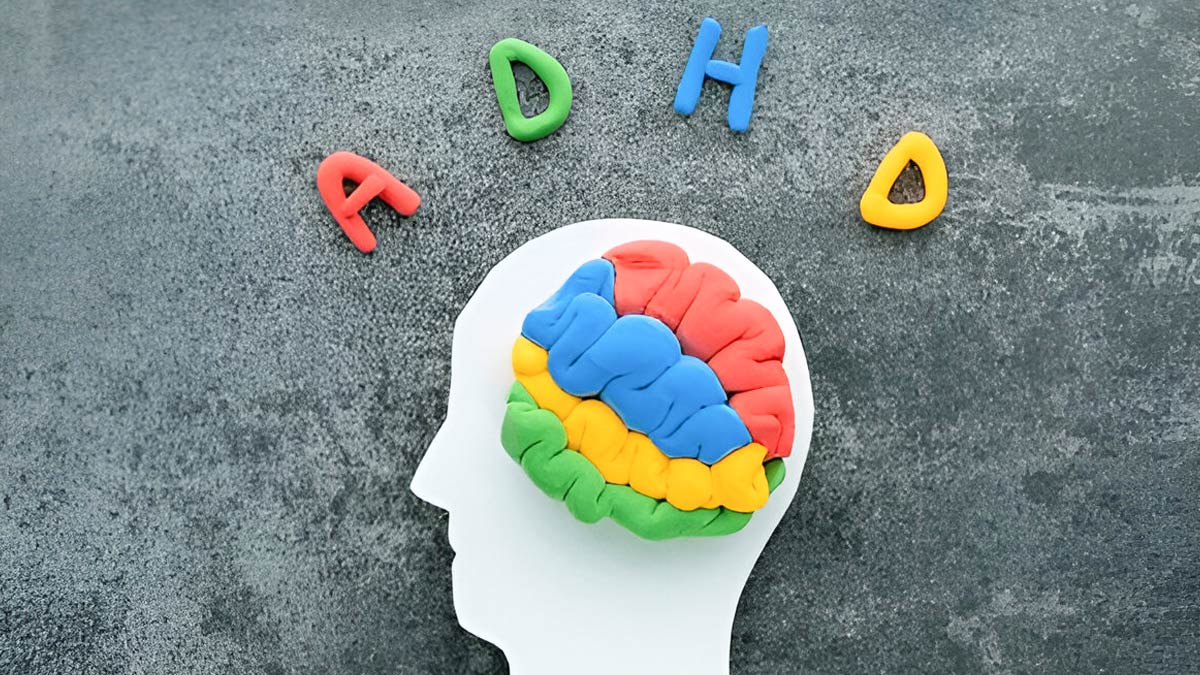
Irritable Bowel Syndrome (IBS) is a gastrointestinal condition that affects millions of people worldwide. It is an extremely common digestive problem that can cause a wide range of symptoms. While diet and stress are said to be common triggers, certain health conditions, including neurodevelopmental disorders like ADHD, or Attention-Deficit/Hyperactivity Disorder, are believed to increase the risk of IBS. But is there a connection between the two? The OnlyMyHealth team spoke to a doctor to understand the same.
Table of Content:-
What Is ADHD?

ADHD, or Attention-Deficit/Hyperactivity Disorder, is a neurodevelopmental disorder that affects both children and adults. People with ADHD often find it challenging to focus, stay organised, follow through on tasks, or sit still for long periods. It can show up in different ways: some people are more hyperactive and impulsive, while others may seem dreamy or distracted.
However, ADHD isn’t caused by poor parenting or too much screen time; it’s rooted in how the brain develops and functions. While it can make school, work, and daily life more difficult, with the right support, like therapy, lifestyle changes, and sometimes medication, people with ADHD can thrive.
Also Read: Could It Be ADHD? Top 6 Overlooked Signs You Need to Know
According to StatPearls Publishing, ADHD presents in different subtypes, each with varying levels of prevalence. The combined type, which includes both inattentive and hyperactive symptoms, is the most common, accounting for about 70% of cases. The inattentive subtype affects approximately 18.3% and is found to be more common among females, while the hyperactive/impulsive subtype represents around 8.3%.
Additionally, research suggests ADHD is more commonly diagnosed in males, with studies showing a 2:1 male-to-female ratio.
What Is Irritable Bowel Syndrome (IBS)?

IBS, or Irritable Bowel Syndrome, is a common digestive disorder that affects how the gut functions. People with IBS frequently deal with bloating, gas, abdominal pain, and unpredictable bowel habits, ranging from diarrhoea to constipation or even both.
While IBS doesn’t cause lasting damage to the intestines, it can deeply impact a person’s quality of life. The exact cause of IBS isn’t fully understood, but it’s believed to involve a mix of gut-brain communication issues, stress, diet, and sensitivity to certain foods.
While there isn't a specific cure, symptoms can often be managed with lifestyle changes, stress management, dietary adjustments, and medical guidance.
Is There A Link Between ADHD And IBS?
In an interaction with the OnlyMyHealth team, Dr Bhushan Bhole, Senior Consultant GI Surgery and Liver Transplantation, PSRI Hospital, Delhi, said, "Recent studies suggest a possible association between Attention-Deficit/Hyperactivity Disorder (ADHD) and Irritable Bowel Syndrome (IBS), although a direct cause-and-effect relationship has not yet been definitively proven. Research indicates that individuals with ADHD are more likely to report gastrointestinal symptoms, including those consistent with IBS."
Arecent systematic review published in Scientific Reports examining the link between ADHD and intestinal disorders found that individuals with ADHD are more likely to experience gastrointestinal issues like constipation and bloating compared to those without the condition. After analysing data from 11 studies involving over 3.8 million people, researchers found a significant association between ADHD and irritable bowel syndrome (IBS), with those with ADHD having a 63% higher risk of developing IBS. While the overall risk for intestinal disorders in people with ADHD was slightly elevated, the strongest connection was seen with IBS.
This is because of shared underlying factors, such as nervous system dysregulation, genetic predisposition, and altered gut-brain axis communication.
While more research is needed to clarify the extent and nature of this connection, clinicians are increasingly recognising the co-occurrence of these conditions.
Can ADHD Medications Influence Gut Health?

According to Dr Bhole, ADHD medications, particularly stimulant drugs like methylphenidate or amphetamine-based formulations, can affect the gastrointestinal system.
"These medications may reduce appetite, lead to dehydration, or cause side effects such as nausea, abdominal pain, or constipation. In some cases, the medications can alter the normal motility of the intestines, which can either improve or worsen IBS symptoms depending on the individual," he shared.
Adding further, he noted that non-stimulant ADHD medications may also have digestive side effects, though typically to a lesser extent. Therefore, it is important for patients and caregivers to monitor how gut symptoms change with medication use and to report concerns to the prescribing physician.
Also Read: Behavioural Therapies Explained: ABA, CBT, And Their Impact On Neurodiverse Children
What Should Caregivers Watch Out For In Managing Both Conditions?
When ADHD and IBS co-exist, a comprehensive approach to care is essential, emphasises Dr Bhole, advising caregivers and patients to monitor for changes in bowel habits, worsening of abdominal symptoms, and any side effects from medications.
“It’s helpful to maintain a food and symptom diary to identify potential dietary triggers. Regular meals, hydration, and fibre intake should be encouraged, and any restrictive eating due to ADHD-related appetite suppression must be addressed,” he concluded.
Read Next
What To Do After A Snake Bite?
How we keep this article up to date:
We work with experts and keep a close eye on the latest in health and wellness. Whenever there is a new research or helpful information, we update our articles with accurate and useful advice.
Current Version